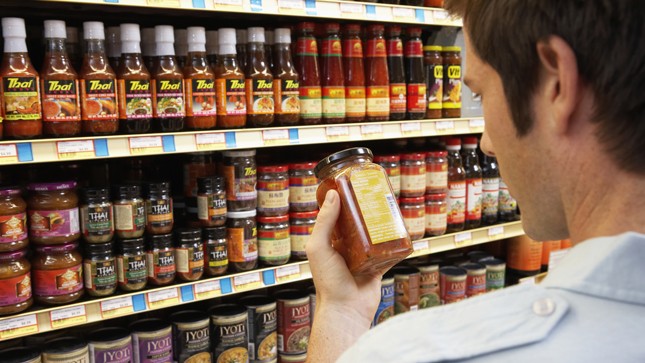
GMO Bill Intensifies Federal Food Fight
The fight over the labeling of genetically engineered food is heating up on Capitol Hill, as safety advocates mount a campaign to beat back industry-backed legislation that would leave the nation without a mandatory labeling standard.
Rep. Mike Pompeo (R-Kan.) introduced the Safe and Accurate Food Labeling Act of 2015 last week with lead co-sponsor Rep. G.K. Butterfield (D-N.C.). The bill would create a voluntary federal labeling standard, while pre-empting states from passing their own mandatory labeling laws for genetically modified — or GMO — foods.
March 28, 2015 | Source: The Hill | by Lydia Wheeler
The fight over the labeling of genetically engineered food is heating up on Capitol Hill, as safety advocates mount a campaign to beat back industry-backed legislation that would leave the nation without a mandatory labeling standard.
Rep. Mike Pompeo (R-Kan.) introduced the Safe and Accurate Food Labeling Act of 2015 last week with lead co-sponsor Rep. G.K. Butterfield (D-N.C.). The bill would create a voluntary federal labeling standard, while pre-empting states from passing their own mandatory labeling laws for genetically modified — or GMO — foods.
With 20 co-sponsors —12 Republicans and eight Democrats, including Butterfield — backers of the proposal appear to be gaining momentum and say they are confident the GOP-controlled Congress will approve the bill.
While there is not yet legislation in the Senate, Pompeo said the measure has a path forward after years of debate over whether and how Congress should address concerns about the increased role of biotechnology in growing crops.
“This isn’t a messaging bill, this isn’t something the House intends to do so we can say we did it,” he told reporters. “The idea is to get the Senate to move on roughly the same timeframe that we’re proceeding on.”
Food safety advocates say lawmakers will ultimately balk at the bill once they discover its implications.
“Members of Congress are really looking for a federal solution here,” said Colin O’Neil, director of government affairs for the Center for Food Safety. “I think we’re going to get to that rubber meets the road point where members realize they are being sold on a bill that doesn’t solve anything consumers are asking for, which is a mandatory labeling standard.”
Still opponents fear the sway — and vast resources — of the bill’s industry backers.
Groups representing major agriculture and biotechnology interests have poured millions of dollars into battles over state proposals to create mandatory labeling laws. The bill is an effort to block all of those efforts in a single stroke, said Scott Faber, vice president of government affairs at the Environmental Working Group.
“Clearly this is a legislative Hail Mary designed to not only block states like Vermont from giving people the right to know what they’re eating, but make it much harder for the FDA to craft a national mandatory labeling solution,” he said.
Faber said the Pompeo-Butterfield bill would narrow the circumstances for when FDA can require disclosures down to health and safety concerns. The agency can now require a label merely to help consumers make more informed choices.
The groups instead are pushing Congress to pass the Genetically Engineered Food Right-to-Know Act, introduced in the Senate earlier this month by Sen. Barbara Boxer (D-Calif.), and in the House by Peter DeFazio (D-Ore.). Their bill would require labels for all foods produced using genetically engineering ingredients and prohibit manufacturers from labeling genetically modified foods as natural.
